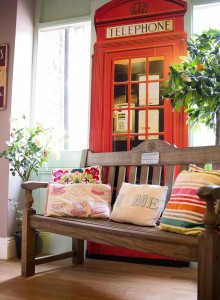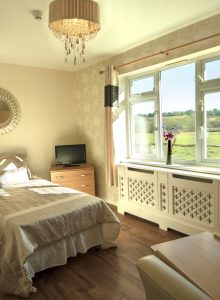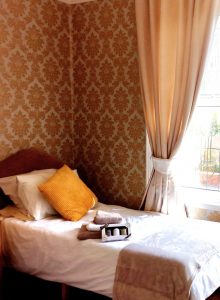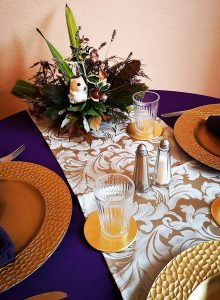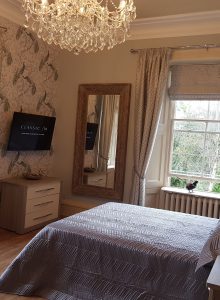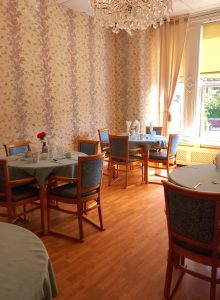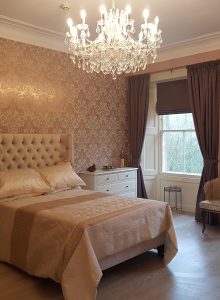Choosing the Right Care Home
Choosing a care home can be daunting. You’ll want to ensure the home you choose provides the level of support you need and is also a place you or your loved one will feel happy to live in. We’re here to make things as simple and heartening as possible.
It’s important for you to find out everything you can about a potential care home and do a thorough background check before you commit. Here, we’ve put together a guide with tips on choosing a care home and a checklist of factors to consider when visiting prospective care homes. You’ll also find some steps you can take to ensure you make an informed decision.
Do’s and Don’ts When Viewing a Potential Care Home
Don’t book an appointment. Drop in unexpectedly so that you can see the home as it really is and not as it has been ‘prepared’ for you in advance. You’ll want to get a true sense of how the home is beyond the window dressing.
Do consider visiting at lunch or tea times. Mealtimes are one of the most important parts of a resident’s day and an opportune time to get a real feel for the atmosphere of a home. You can see staff in action, speak with some of the residents, and sample what is being served to get a sense of the quality of food and the mealtime experience in general.
Please ask to see the home’s current CQC inspection report. The Care Quality Commission (CQC) is England’s independent regulator of health and social care. They monitor, inspect and regulate health and social care services and publish what they find with ratings to help people choose care. The care homes you visit should have their CQC report displayed in a public area along with the home’s complaint policy & procedure.
Do meet a selection of staff. The staff you meet should range from Managers to Care Staff, Activities Coordinators, and even Catering Staff. This will allow you to have a cross-section of viewpoints and provide access to key areas of the home.
Do consider location. The location and accessibility of a care home are decisive factors in encouraging relatives and friends to visit regularly. Regular visits from relatives and friends are vital for elderly people in care and those living with dementia. These visits help them adjust to their new environment and promote general well-being.
Don’t underestimate visiting times. Ensure you find out about any restrictions that might prevent you from spending time with your loved ones. Also, ask if the home accommodates family and friends to dine with residents.
Do ask to view communal areas and gardens. It is essential that a home has a choice of facilities, activity rooms and quiet areas. If there is an activity room, there should be evidence of regular use by residents and activities being carried out. Also, consider whether the front and rear gardens are well maintained. This will show that they are being used regularly. All outside areas should have disability access.
Do find out about daily activities. A good home should provide opportunities for residents to get regular exercise and have external therapists attend classes.
Seek Person Centred Care
This part goes hand in hand with knowing your or your loved one’s care needs and what factors are most important to you. The care home you choose should be able to accommodate these needs and provide a level of support personalised to you.
- The home manager should ask you about your care needs and medical background. They should get a clear personal profile about you or your loved one before ensuring the home meets your needs.
- In the event that your care needs eventually change, can the home accommodate these changes, or will you or your relative have to be moved to another home? You should ask the home manager about the home’s capacity for all levels of needs and whether they can offer a choice.
- The home manager should encourage you to become involved and contribute to your loved one’s care life.
- Find out if the home operates a key worker system so that you or your loved one has dedicated home staff.
- Request to see as many bedrooms as possible to get an idea of how well the home can accommodate your changing needs by allowing you or your loved one to move around.
- Bedrooms should have ensuite facilities or easy access to the nearest bathroom. If bedrooms are not ensuite, ask where the closest bathroom is.
- Request to see the bathrooms. There should be a wet room and a separate bathroom so that residents can choose.
- Bedrooms should be attractive, well-decorated and bright. If the room looks tired and worn, ask if it will be decorated before a new admission.
- Find out if residents can bring some of their own effects to decorate or personalise their bedrooms.
- If you or your loved one requires specialist equipment like hoists or slings, find out if these are available in the home.
- The home should help you understand all the care cost implications of you or your loved one moving into the home. You should discuss how the care will be funded depending on savings and be clear about any contributions you may have to make.
- You should seek the opportunity to speak to current residents and any family/relatives who might be visiting while you are there.
- You should find out if the home provides a range of activities and whether these are person-centred to stimulate residents of varying needs. Request a schedule of forthcoming activities and trips or a timetable of regular activities. Look for pictures of recent activities on display or on the care home’s website.
- Request to see the home’s kitchen and meet catering staff. Ask them about mealtime arrangements and menus: Can meals be taken in resident bedrooms at times that suit a resident’s needs? Is food available 24 hours a day? Does the home provide a choice of daily meals? Does the home cater for specific dietary requirements and consider the likes and dislikes of individual residents?
Rely on your Senses to Observe Vital Signs
After your visit to a potential care home, consider the following:
- Were you given a warm welcome from the member of staff who answered the door?
- Were you offered refreshments and invited to take a seat?
- Did the home have foul odours or obtrusive chemical smells like air freshener and bleach? Or did you smell home cooking that put you at ease?
- Were you satisfied with the cleanliness of the home and the attention to detail in its presentation?
- Did the environment feel comfortable, homey and personal? Or did it feel stuffy, inhospitable and clinical?
- Was the home excessively noisy or uncomfortably quiet? Or was there pleasant music in the background and a general sense of calm?
- Were the staff smiling, relaxed and approachable? Or did they seem rushed and tense?
- Consider the lounge areas and/or activity rooms; were they configured to encourage interaction, or were all chairs/seats lined up alongside one another?
- Did you pay attention to how staff were interacting with residents? Were residents being treated with respect, dignity and kindness?
We hope this guide is helpful to you. For more tips and pointers on choosing a care home, download our Choosing the Right Care Home pack.


